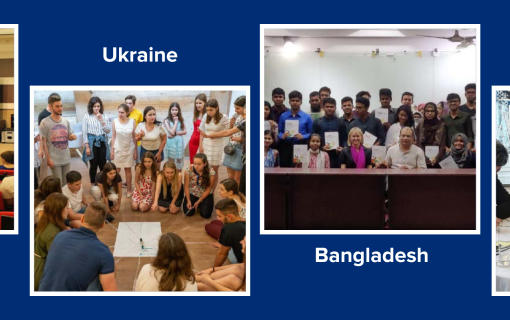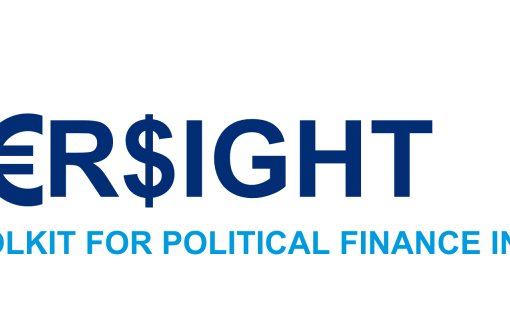Evaluation of Fondation Hirondelle/Star Radio Project, Monrovia, February 7, 1999
EXECUTIVE SUMMARY
The International Foundation for Election Systems (IFES) engaged media specialist Gregory A. Kintz to evaluate its Star Radio project. The late 1998 evaluation of Monrovia-based Star Radio was intended to determine the progress that has been made toward Star's establishment as an independent and economically viable Liberia radio station, and to offer recommendations to Foundation Hirondelle, IFES, and Star Radio as to how best assist in achieving that goal.
Mr. Kintz found that significant progress has been made toward Star's establishment as a Liberian-managed and operated radio station since it was started in the months prior to Liberia's July 19, 1997 national elections. Even so, significant work remains to be done. Over the course of 1999, the Hirondelle Foundation's (FH) staff should seek to more fully engage Star's board of directors in the transition process and in the identification and hiring of a Liberian station manager.
Progress on Star's transition has been hampered by factors outside of the control of FH, IFES, and Star. These factors include: a series of delays in USAID provision of add-on funds to its grant agreement with IFES dating to January 1998; restrictions on travel to and within Liberia; legal attacks on Star orchestrated by three Liberian ministries; building political and social tension since the 1997 elections; and, security concerns related to internal tensions as well as to the ongoing civil war in neighboring Sierra Leone. The negative impact of these factors on Star's transition increased exponentially with the September 18-19 Camp Johnson Road incident and its continued aftermath. Nonetheless, the commitment remains on the part of IFES and FH to facilitate Star's transition as quickly and smoothly as possible.
Based on Mr. Kintz's visit, an initial plan for Star's future has been developed. Section VIII of this report carefully outlines a strategy for Star Radio's future, focusing on its institutional development and alternative approaches to the station's funding.
The Star project must be viewed in three phases. Star's "rapid-response phase," May 1997- December 1998, featured Star's speedy installation with limited operational training and "on the fly" planning for sustainability. The desire for Star to begin broadcasting before the June elections eclipsed those for institutional development until sometime after the elections. Star's rapid-response phase, or phase one, is characterized by several key highlights:
• Hiring and training of station administrative and production staff.
• Acquisition of production and broadcast equipment, office space, vehicles, etc.
• Establishment of broadcast agreement with Radio Monrovia.
• Acquisition of broadcast frequencies.
• Broadcasting on FM, July 1997.
• Broadcasting on short wave, September 1997.
• Temporary station shutdown by the Liberian government, January 1998.
• Short wave transmitter destroyed by lightning, March 1998.
• Development of a transition plan.
• Establishment of a board of directors.
• Transition of the board from advisory body to a governing body.
• Legal attacks by the Liberian Ministry of Labor, Posts and Telecommunications, and Ministry of Information and Culture.
January 1999 marks the beginning of Star's second phase. Efforts should center on the building of a sustainable Liberian media institution. The evolution of the Star project from phase one to phase two is significant. It allows for a clear demarcation between the mode of operation to this point, with an expatriate manager and administrator, to a fully Liberian management structure under the supervision of an expanded board of directors.
An expatriate technical advisor would remain to assist Star and its board in their development. Phase two is projected to extend from January 1999 through December 2001. Phase two of the Star project is envisioned as including:
• Restructured and more active board of directors.
• Liberian station manager, administrator, and technical manager/chief engineer.
• Expatriate technical advisor serving as counterpart to the station manager for two years.
• Continued growth in staff skill and professionalism.
• Fondation Hirondelle shifts from IFES contractor to IFES sub-grantee.
• Significant diversification of donor funding, led by the board of directors.
• Phase out of relationship with Radio Monrovia.
• Increase in Star Radio programming.
• Expanded production and broadcast of social and economic development programming.
• Expansion of vernacular and Liberian-English language programming.
• Training opportunities for Liberian and regional journalists and technicians.
• Strengthened relationships with the Liberian mass media community.
• Uninterrupted short wave programming and national coverage.
• Improved relations with the Government of Liberia.
The Star project's third and final phase begins with Star Radio's establishment as a self-sustaining Liberian media outlet. IFES estimated that phase three could begin in January 2002. Among other things, phase three will offer:
• Star Radio, a Liberian media institution.
• Complete phase out of expatriate involvement.
• Engagement of technical assistance on an "as needed" contractual basis.
• Direct funding of Star by national and international sources.
• Gradual expansion in Liberian/local financial support.
• Continued monitoring and support by the international community.
• Training opportunities for Liberian and regional journalists and technicians.
• Positive relationship with the Government of Liberia.
Read the Full Report.








